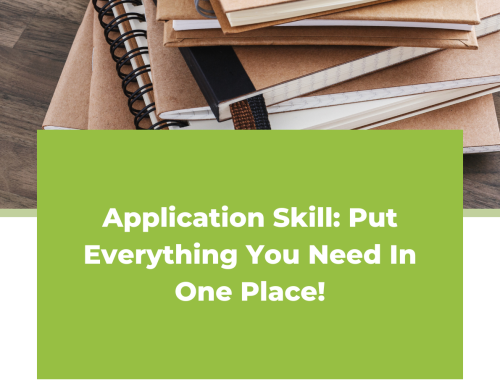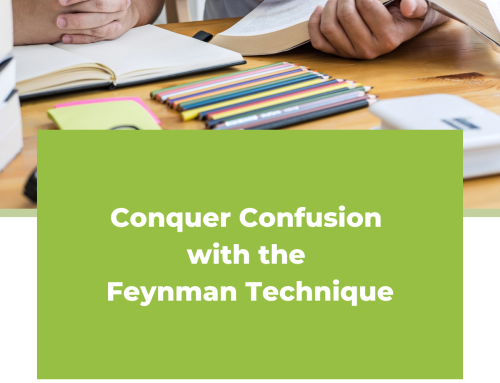Conquering the Illusion of Knowledge: Embrace Active Recall with Cue Cards
You’ve finished organizing all your notes, and everything you need for the exam is right in front of you. As you read through your meticulously prepared notes, you feel a sense of confidence. You know this information inside and out. However, there’s a twist. When you find yourself without those notes, your confidence wavers. Suddenly, you’re not so sure anymore. This phenomenon is what we call the “illusion of knowledge.” It’s that feeling of familiarity when we recognize information, but we don’t truly know it well enough to recall it without any prompts—exactly what we need to do during an exam.
The Illusion of Knowledge
This illusion often occurs when we rely on passive study techniques. Passive studying is like being a bystander, just taking in information without actively engaging with it. Examples of passive techniques include reading the textbook or simply reviewing your notes. While these methods may help us create memories of the information, they don’t strengthen our ability to recall it on demand.
The Shift to Active Recall
To overcome the illusion of knowing and move toward true understanding, switch to active recall. Active recall involves actively engaging with the information and practicing retrieving it from memory without any prompts. By making this simple switch, you increase your chances of remembering the information you’re studying by 5-7 times.
Implementing Active Recall with Cue Cards
A familiar and powerful method of active recall is using cue cards. Traditionally, cue cards might involve a definition on one side and a corresponding term on the other. However, this method focuses too much on memorization rather than understanding. To enhance the effectiveness of cue cards, write questions and answers that require you to explain, apply, or compare concepts.
Finding Questions for Cue Cards
- Learning Objectives: Transform learning objectives from your syllabus into questions. For example, “Describe syntax-first and interactionist approaches to parsing” can become “Describe and compare the syntax-first and interactionist approaches to parsing.”
- Practice Exams: Use questions from past practice exams to add to your cue cards. Identify recurring themes and patterns in these questions to focus your practice.
- Textbooks: Utilize chapter summaries and end-of-chapter questions in your textbooks to enhance your cue cards.
Advantages of Question-Based Cue Cards
By incorporating questions into your cue cards, you go beyond surface-level memorization. This approach helps you develop a comprehensive understanding of the topics, preparing you to confidently answer a wide range of exam questions. Moreover, it allows you to engage in higher-level thinking skills, such as analyzing, synthesizing, and evaluating information.
Action Steps
- Identify Key Concepts: Choose important topics from your syllabus.
- Create Cue Cards: Write questions and answers that encourage explanation, application, and comparison.
- Regular Practice: Use your cue cards regularly to reinforce your understanding and recall abilities.
- Reflect and Adjust: Continuously update your cue cards based on practice exams and new insights.
Conclusion
Don’t fall into the trap of the illusion of knowledge. Embrace active recall and use effective study techniques like question-based cue cards. Continuously refine and improve your cue cards as you progress. By doing so, you’ll move from simply recognizing information to truly understanding and being able to recall it when it matters most.
Remember, the goal is not just to memorize but to understand deeply and be able to articulate your knowledge. By integrating these strategies, you’ll enhance your study sessions and improve your exam performance.
For more study strategies, check out other posts in our series:
- Blank Page Recall
- Turn Text into Diagrams
- Spaced Repetition
- One Page Summary
- Who What When Where Why How Tables
- Teach Someone Else
- Exam Questions
- Create a Bound Reference
- Practice Exams
Post by Study Coach – Megan Ross






Leave A Comment